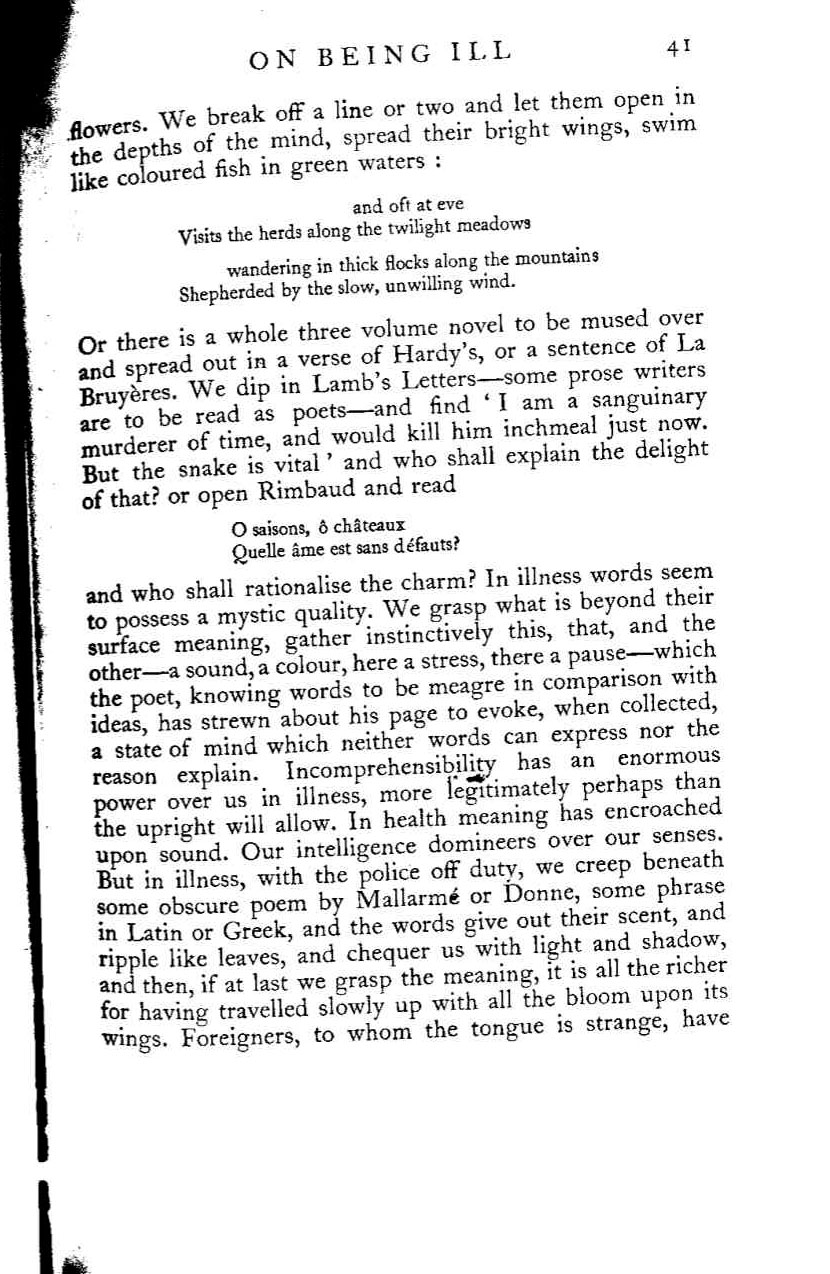
flowers. We break off a line or two and let them open in
the depths of the mind, spread their bright wings, swim
like coloured fish in green waters:
and oft at eve
Visits the herds along the twilight meadows
wandering in thick flocks along the mountains
Shepherded by the slow, unwilling wind.
Or there is a whole three volume novel to be mused over
And spread out in a verse of Hardy's, or a sentence of La
Bruy├®res. We dip in Lamb's LettersŌĆösome prose writers
are to be read as poetsŌĆöand find ŌĆśI am a sanguinary
murderer of time, and would kill him inchmeal just now.
But the snake is vitalŌĆÖ and who shall explain the delight
of that? or open Rimbaud and read
O saisons ô châteaux
Quelle ├óme est sans d├®fauts?
and who shall rationalise the charm? In illness words seem
to possess a mystic quality. We grasp what is beyond their
surface meaning, gather instinctively this, that, and the
otherŌĆöa sound, a colour, here a stress, there a pauseŌĆöwhich
the poet, knowing words to be meagre in comparison with
ideas, has strewn about his page to evoke, when collected,
a state of mind which neither words can express nor the
reason explain. Incomprehensibility has an enormous
power over us in illness, more legitimately perhaps than
the upright will allow. In health meaning has encroached
upon sound. Our intelligence domineers over our senses.
But in illness, with the police off duty, we creep beneath
some obscure poem by Mallarm├® or Donne, some phrase
in Latin or Greek, and the words give out their scent, and
ripple like leaves, and chequer us with light and shadow,
and then, if at last we grasp the meaning, it is all the richer
for having travelled slowly up with all the bloom upon its
wings. Foreigners, to whom the tongue is strange, have






